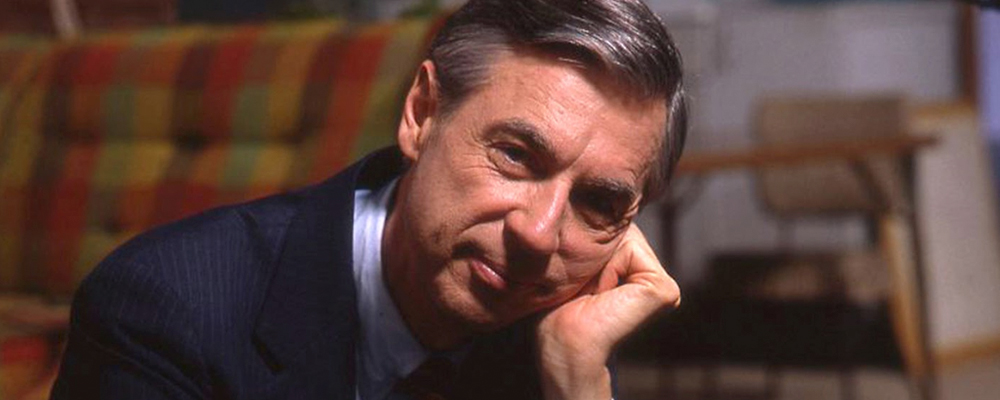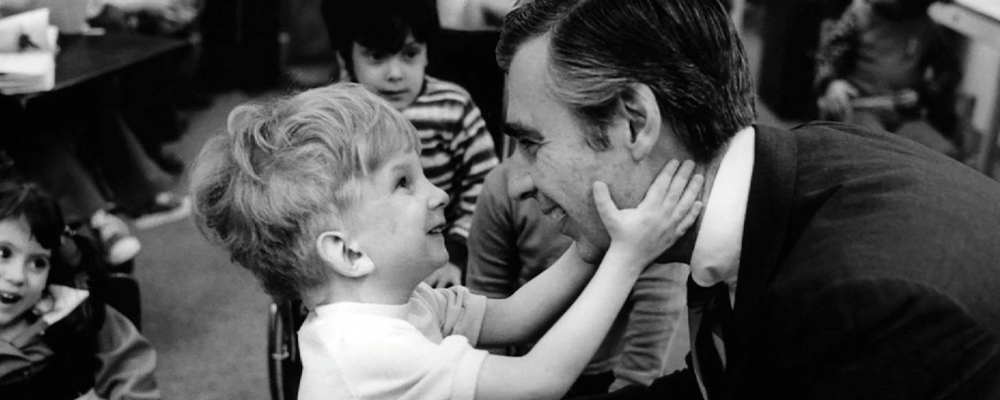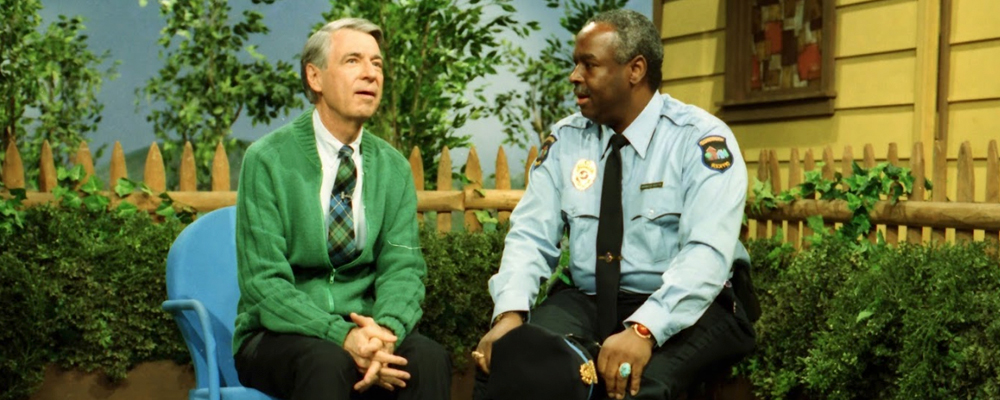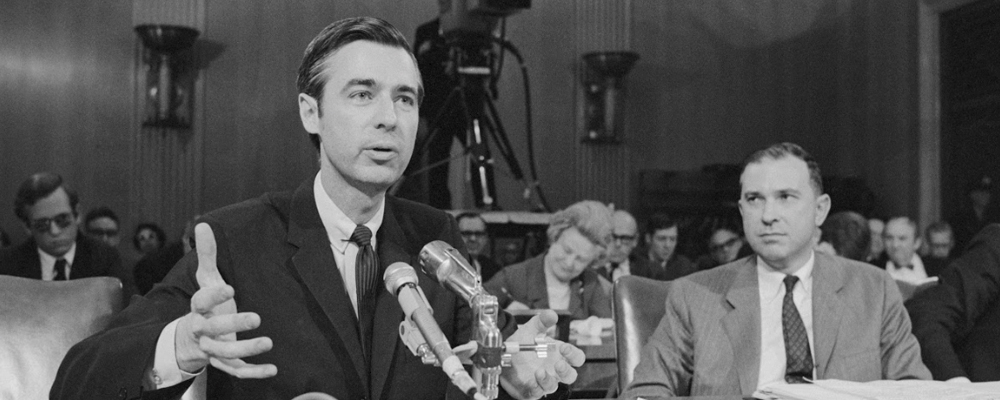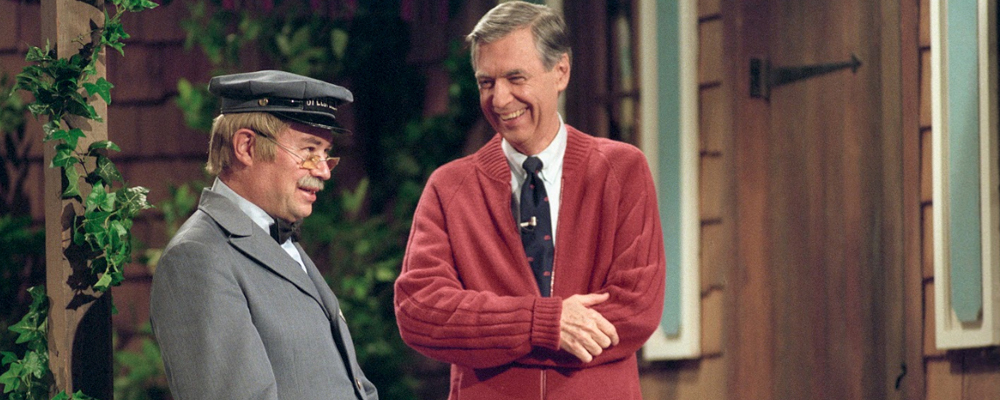‘Won’t You Be My Neighbor?’ Reveals the Lovingly Radical Heart of Fred Rogers
Alci Rengifo
In a world where being mean is the norm, being kind might be the most radical act. “Won’t You Be My Neighbor?” tells the story of Fred Rogers, who helped raise several generations of Americans via his children’s television show, “Mister Rogers’ Neighborhood.” But this is not a simple biography, it is also a moving work of cultural criticism. Rogers becomes a symbol for how goodness is rare in a society becoming crueler and violent. This is the most recent work from director Morgan Neville, whose great 2015 documentary “Best of Enemies” chronicled the 1968 TV debates between Gore Vidal and William F. Buckley. It was a commentary on the evolution of political discourse in media. With “Won’t You Be My Neighbor?” Neville uses the story of Fred Rogers to look back at how much American culture has changed in half a century, and how much it hasn’t.
The documentary opens with black and white footage of Rogers at the piano, discussing the importance of connecting with children. We can already see the delicacy and special warmth in the man, which made his show so welcoming. Neville then goes back in time to the 1960s, when Rogers was preparing to become a Presbyterian minister in Pennsylvania. Forever devoted to his faith, Rogers nonetheless decides to change course when he discovers the medium of television. He crafts an educational show for children featuring puppets and guests to explore important themes surrounding life, including difficult topics such as war and death. He approaches his task like a counselor, eager to help form children into individuals who can tackle life with kindness and maturity, to speak instead of shout, to understand instead of discriminate. When “Mister Rogers’ Neighborhood” is picked up by PBS Rogers becomes a national icon, defining a special form of children’s programming amid the loud, violent content saturating the airwaves.
For those who grew up watching “Mister Rogers’ Neighborhood,” this documentary is both a nostalgic trip back in time and a revelation. Things which one simply accepted as a child gain a new relevance here. It is impressive to see just how socially radical Rogers’ show was. Premiering in 1968, the first episode had a clear antiwar message as Vietnam dominated headlines. Neville shows footage from the first broadcast, where the famous King Friday XIII puppet Rogers used for the show’s fantasy section sports a military helmet, ordering his minions to build “a wall” around his castle. Messages of peace are parachuted into the castle, forcing King Friday to accept and declare peace. As explained by those who worked on the show, such skits were meant to explore the idea of rich versus poor, the rulers versus the ruled. At a time when the Civil Rights movement was tackling the nation’s racial divisions, Rogers cast African American artist François Scarborough Clemmons as Officer Clemmons. There was a simple, elegant way in which Rogers would make his statements. For example he had a segment where he and Clemmons together soaked their feet in a water tub, which at the time was quite the statement when blacks were forbidden from whites only swimming pools. When Robert Kennedy is murdered during the 1968 presidential campaign, Rogers crafts a segment where a puppet asks, “what does ‘assassination’ mean?’” As portrayed here, Rogers, a lifelong Republican, took his stances out of a pure, moral conviction. He opposed segregation and the Vietnam war because they were simply wrong.
“Won’t You Be My Neighbor” is also a fascinating, moving portrait of Rogers and the inner struggles that fueled his vision. Behind the cheery welcoming song that opened every episode of “Mister Rogers’ Neighborhood,” when Rogers would get cozy with his sweater and switching shoes, there was a channeling of childhood experiences. In the “Make-Believe” section of the show the puppet of Daniel Striped Tiger was a projection of Rogers himself, of the inner child that always felt scared and confused. Raised by wealthy parents, but afflicted by health issues and chubbiness as a kid, Rogers was forever scarred by youth’s insecurities. But he took those feelings and used them to craft a positive, educational outlook which helped him instantly relate to the general experience of his young viewers. There is revealing footage here of Rogers sitting among kids, using his puppets as the bridge between his adult self and them. He seems to transform, even when he uses the puppets on the adult hosts of TV shows where he is being interviewed. They can’t help but be charmed. In one impressive moment, Rogers single-handedly convinces a senate committee not to cut funding for PBS with a soft-spoken testimonial. Neville interviews key figures from the show and Rogers’ life, including his wife Joanne (who is just as full of life and cheer as the great man), Yo-Yo Ma, Clemmons and crew members from the show. They all seem to have been clearly affected by having come into contact with Rogers and the warmth of his personality. Even one of his sons confesses it was difficult to live with a man one step down from sainthood.
But we are all human, and “Won’t You Be My Neighbor?” is also an honest portrait. Clemmons reveals how Rogers had to ask him to keep his homosexual identity strictly confidential, lest they lose support for the show in a highly conservative era. And as the times became even meaner and uncertain, particularly after the terror attacks of September 11, Rogers found himself adrift in a world more and more distant from his philosophy. In one sad moment, a colleague shares how Rogers was invited to film some spots to address 9/11, and he wondered aloud if anyone was even listening. Even children’s television was becoming ever more crude and violent. Never losing his own faith or personality, Rogers still felt the world slipping into darker waters. One of the powerful questions a guest poses in the documentary is how would Rogers react to our current situation?
Warmhearted but honest and mature, “Won’t You Be My Neighbor?” is a portrait of a TV icon and a cultural critique of the times. It can be enjoyed for its nostalgic trip back in time and for the lingering, urgent message it conveys. Neville gives us the backstory of Rogers and his famous show, but with deeper things to say. Goodness can be rare in harsh times, and people who practice genuine kindness are like fading lamps in an age of brutal manners.
“Won’t You Be My Neighbor?” releases June 8 in select theaters.

